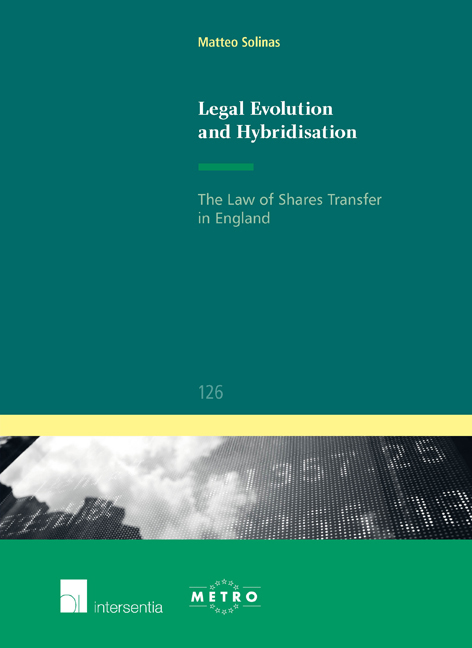Summary
Part III looked at the process of legal change in the area of post-trading following the growth of intermediation in financial markets and considered the mechanism of circulation of (interests) in shares.
Chapter 6 was introductory. It clarified the meaning of the move from direct to indirect (book-entry) holdings, from the pattern of holding shares to the one of holding interests/entitlements in shares where investors purchase and sell and provide collateral to secured lenders on their holdings by means of book-entries made in the securities account kept with the intermediary. It then considered some of the most significant sources of legal risk arising from the evolution of financial practice, giving special attention to certain deficiencies and ambiguities in English law and arguing for law reform. The analysis was carried out by focusing on three examples of substantive English law raised by the FMLC and by sketching the major causes of ambiguity in the area of conflict of laws. Not addressing the uncertainties associated with domestic/cross-border transfers of intermediated shares and the legal risk arising from certain conceptual incompatibilities may leave investors in a weaker position than when they hold the securities directly from the issuer. This was regarded as an unwelcome scenario that might, in turn, undermine the attractiveness of the indirect holding system and, possibly, the efficiency of financial markets. Building on this picture, Chapter 6 assessed the responses to legal uncertainty provided by two of the most relevant existing normative projects with a view to creating an harmonised international regime on the transfer of indirectly held securities: the Geneva Securities Convention and the EU Commission project on clearing and settlement. The analysis was carried out by focusing on three issues of legal uncertainty raised by the FMLC report to see how they had been addressed in the Geneva Securities Convention and in the 2008 LCG Advice/Consultation Document. By considering the process of legal evolution that led to the final text of the Convention and estimating its possible implementation in England, the normative inquiry suggested that that pattern can be described in terms of hybridisation by way of analogy with postcolonial arguments addressed in Part I.
- Type
- Chapter
- Information
- Legal Evolution and Hybridisation , pp. 213 - 216Publisher: IntersentiaPrint publication year: 2014

